Rock sokmo.. (jadi rakan FB wa: irwan matrock)
| Caves: The World Beneath the World! Back to the Cave! 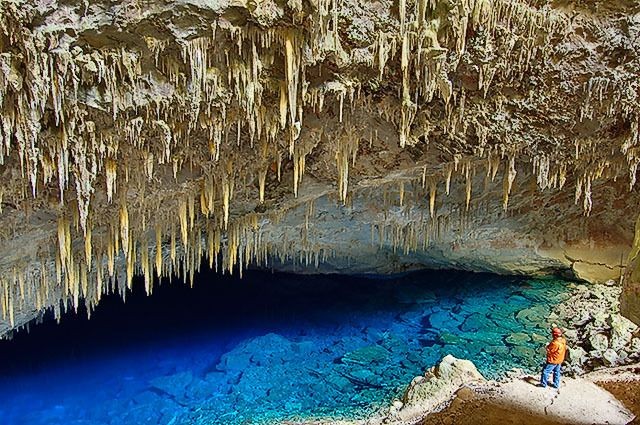 Gruta do Lago Azul, Bonito, Brazil. (photo by www.alexuchoa.com) "Symphony of Stones" (how aptly named) - 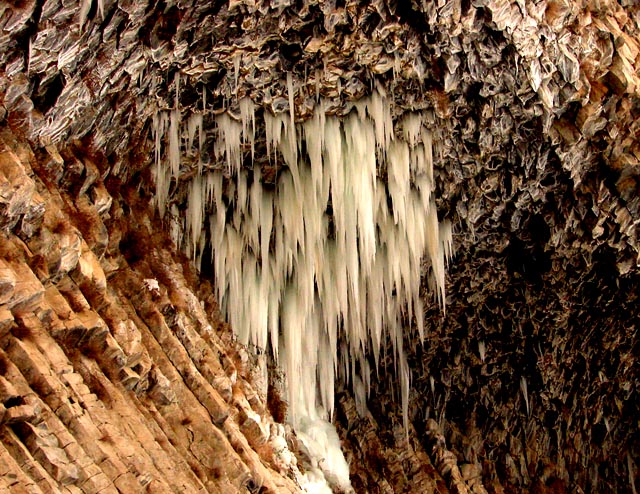 Garni caves in Armenia. (photo by eco culture) Fairyland Cave Formations Caves are a fairyland of delight, from the burning hot enclaves to the glacial ice mazes. Thousands of years of dripping water, eroding stone and budding minerals create a silent world of mystery and beauty... Graceful arches, giant crystals... silent but for the sound of water dripping and bubbling through.  A "Wishing Well" at Luray Caverns in Virginia (photo by Declan McCullagh) The most common type of caves form when slightly acidic rainwater trickles into the crevices of limestone and gradually widens the cracks as it dissolves the stone. Centuries of water, supersaturated with minerals, dripping from cave roofs cause stalagmites and stalactites to form (see here).  (image via) One thing to keep in mind during cave exploration: though these structures are made of minerals, they are generally extremely thin and fragile, many of them are quite rare, and can be damaged or destroyed by touch alone. Calcite (the mineral which forms many cave structures), for example, is soft enough to be scratched by a fingernail. Some of the cave and rock formations: - Flowstone (also known as a Bacon formation) - Cave Pearls - Soda Straws - Helictites - Anthodites (or Aragonite) - Bottlebrush formation 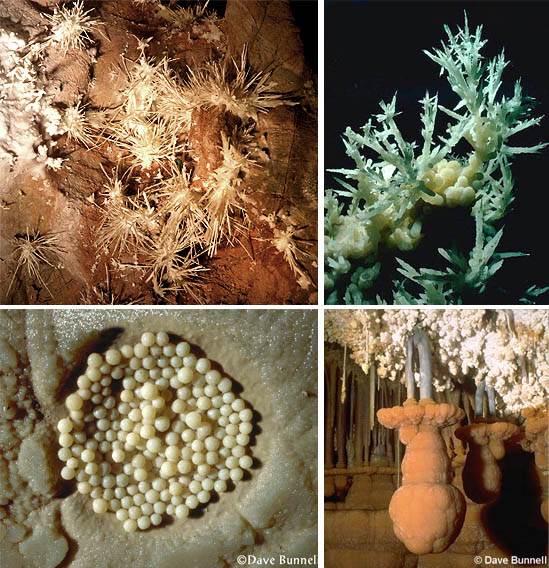 (image credit: Dave Bunnell) Probably the most comprehensive cave-exploration site on the net is that of Dave Bunnell... You can spend hours there, wandering around pages, cataloging whimsical underground structures, oozing rock and dripping stone. 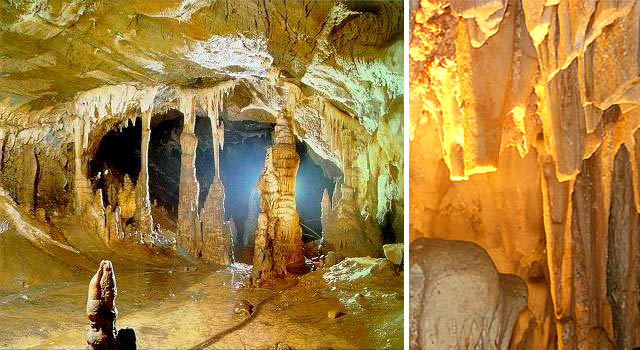 (Gruta do Mimoso, Brazil) Largest Cave Systems We mentioned the Jeita Grotto - the largest cave system in the Middle East- in our recent Lebanon article. The longest known stalactite in the world is found there at 8.2 meters long. - The deepest known cave is Voronya Cave in Abkhazia, Georgia and has been explored to a depth of 2191 meters. - The longest continuous cave system yet explored is Mammoth Cave in Kentucky, covering 591 kilometers. Let's have a short world tour of the most interesting caves, why don't we? We'll start with North America - Already mentioned Luray Caverns in Virginia are full of celebrated speleothems formations, calcite crystals of abnormal shapes - all formed when the chambers were completely filled with water, highly charged with acid. The acid began to eat away the softer material, resulting in ornate pinnacles and arches... 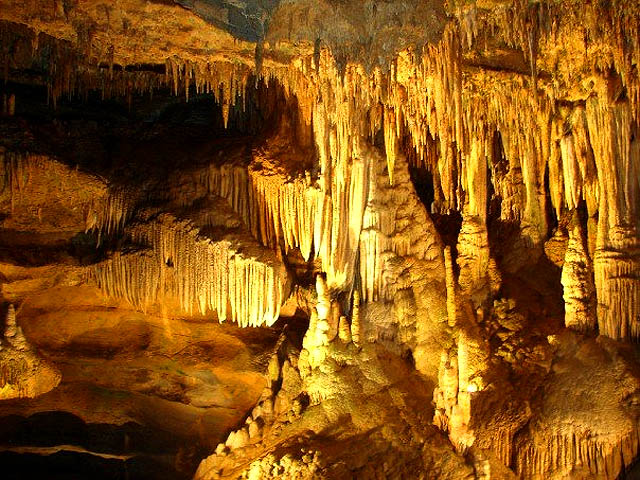 (image credit: Alejocrux) 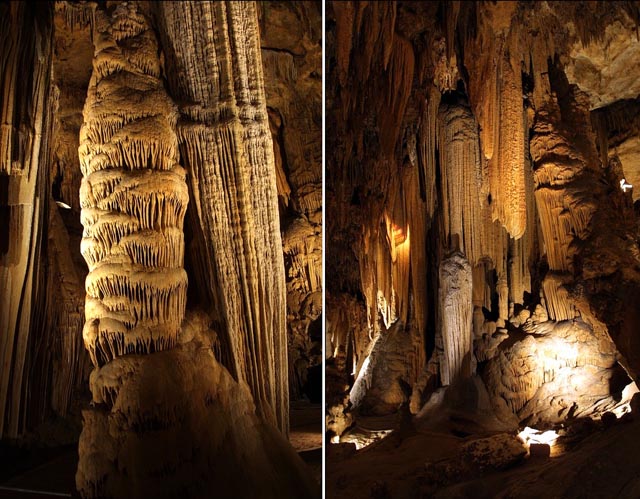 (image credit: Declan McCullagh) One of the deepest known cave pits, Fantastic Pit in Georgia's Ellison's Cave descends 586 feet (179 meters) in a straight tunnel: 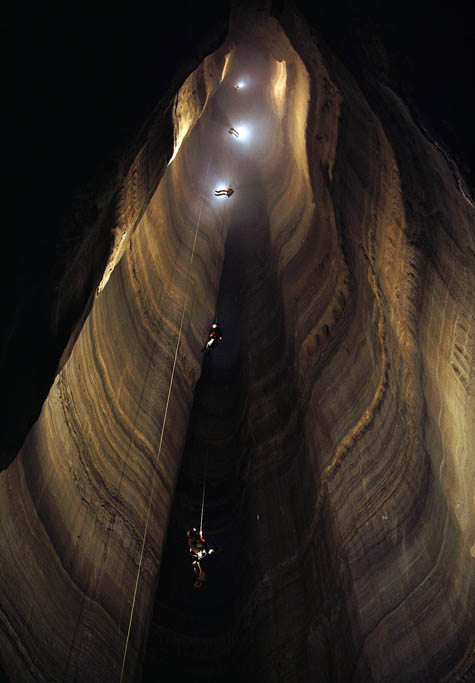 (image credit: Michael Nichols, National Geographic) Glacial Caves and Ice Caverns Some ice caves must rather be called "glacier caves", which can simply astound with the intensity of ice color: 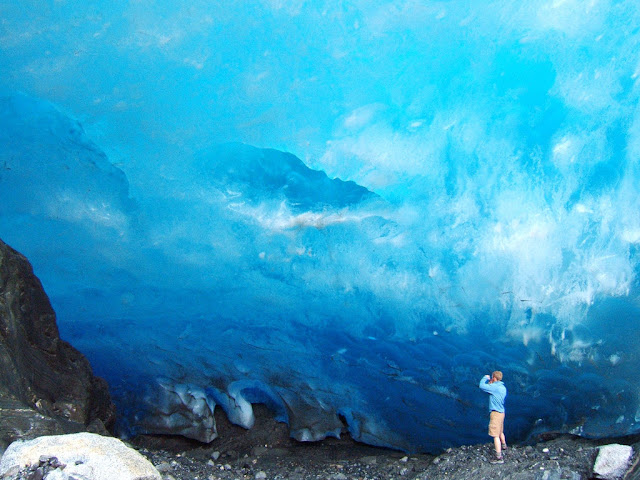 (image credit: Jenna and Tim Dickinson) Here is a wonderful page of ice caves photography by Jason Gulley:  (images credit: Jason Gulley) No sign of Superman or Megatron there yet:  Mount Kenya's Ice Cave Bobby Model, National Georgaphic) 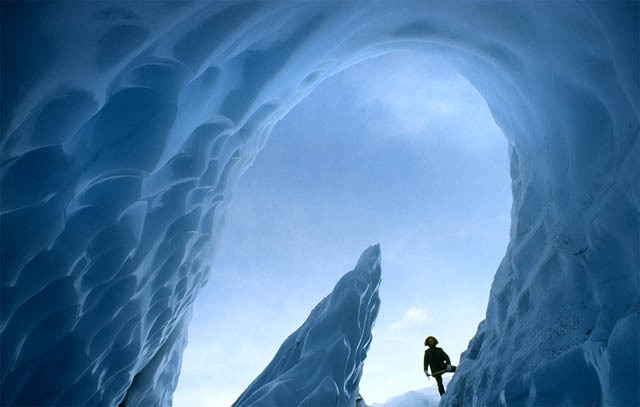 Ice Cave in Matanuska Glacier, Alaska - photo by George F. Mobley, National Geographic A lot of ice caves grow "hair" - ice extrusions, some are quite strange-looking:  (image credit: Ian Mckenzie) Brazil: Crystalline Underground Waters Mato Grosso do Sul region in Brazil (and especially the quiet town of Bonito) boasts many marvelous underground lakes: Gruta do Lago Azul, Gruta do Mimoso, Aquário Natural. Intricate limestone formations and grottos hide the intensely-colored pools and waterfalls (many adventure tours there feature diving, some pools are more than 100 meters deep): 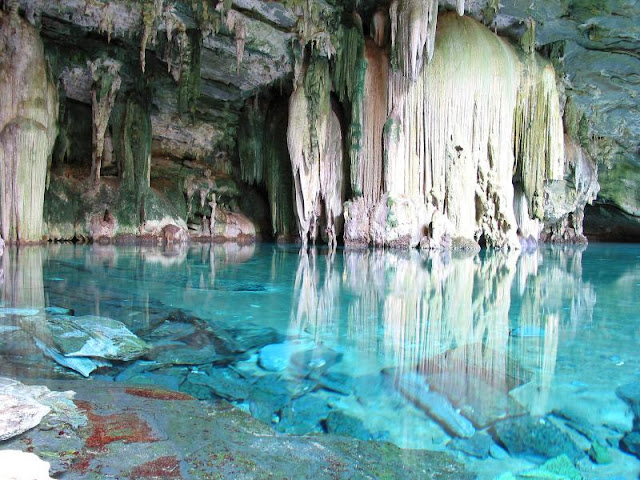 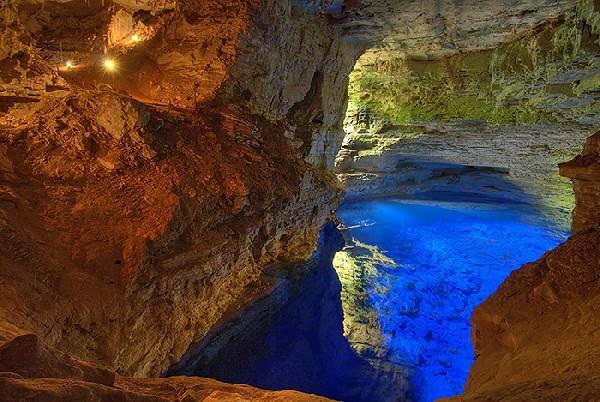 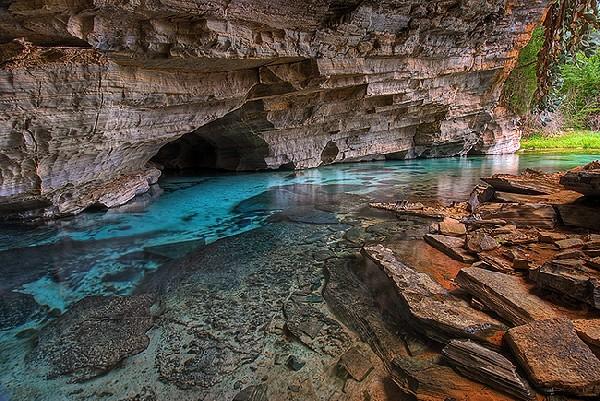 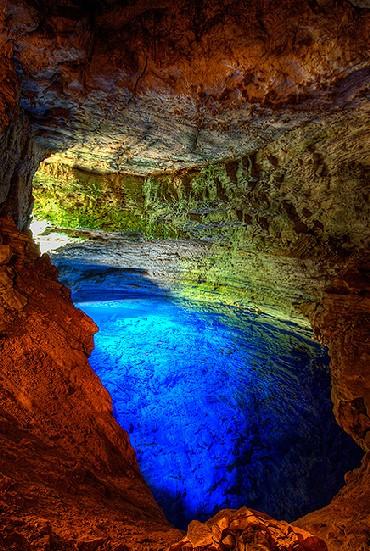 (images via) Limestone caves in the same region offer fantastic exploration: 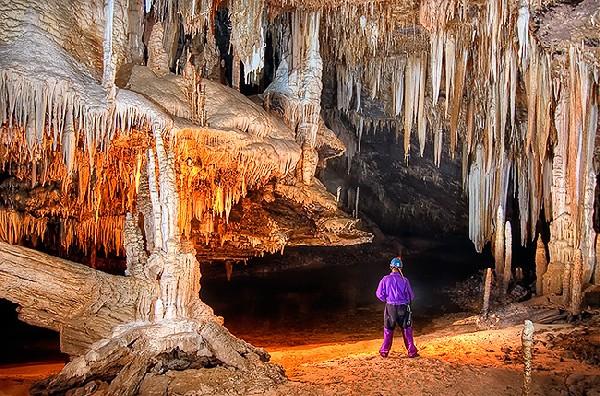 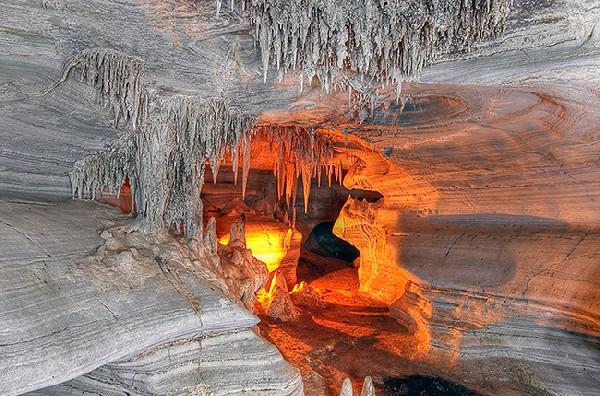 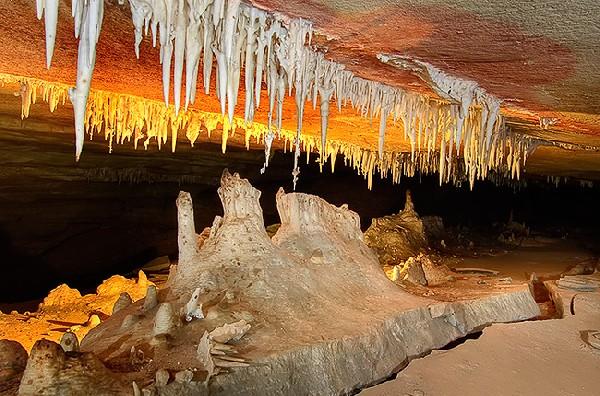 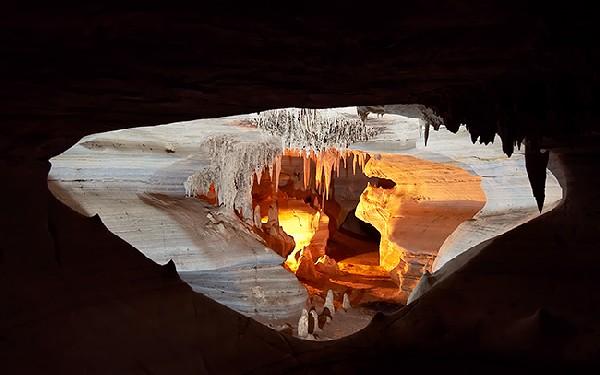 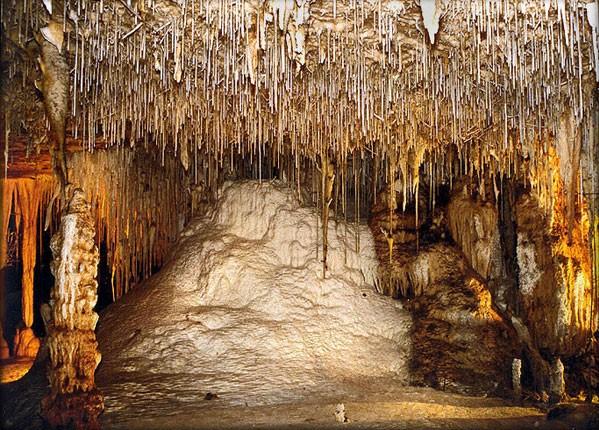  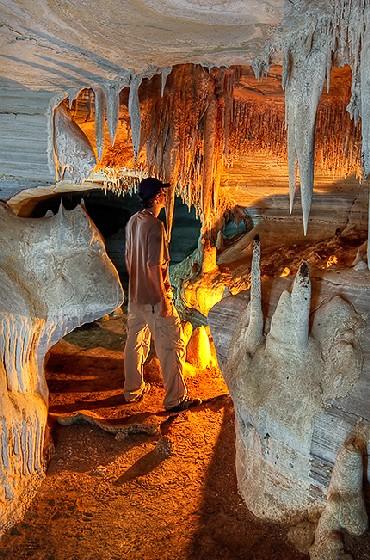 (images via) Venezuela: Cave of the Ghost Cueva del Fantasma is big enough for two helicopters to fly into it, but it's not technically a cave - rather, a collapsed gorge. It does, however, sport a huge waterfall right inside of it:  (image via) Iran: tremendous cave system Katale Khor is a cave dating back to the Jurassic period. It's one of the "snow caves" in the Southwest Zanjan province and connects to other caves - a huge underground infra-structure which can hide who knows what (definitely anti-American... wink wink). See more pictures here 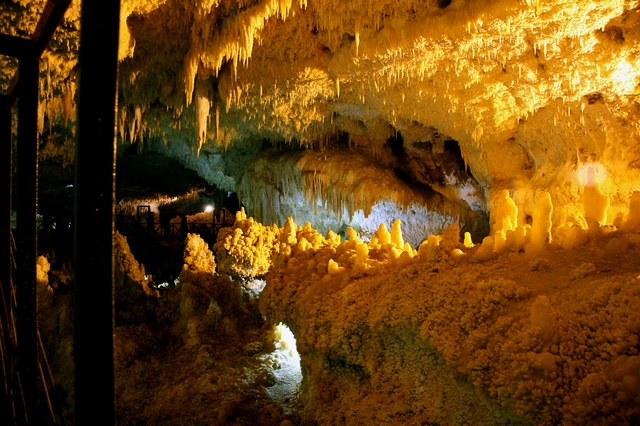 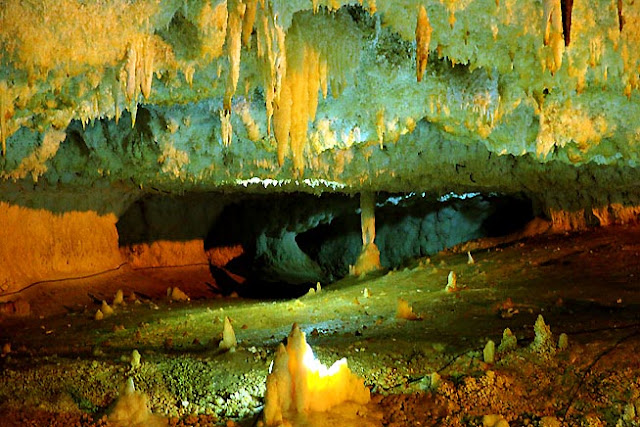  (images credit: Ali Majdfar) Can't get enough images of Iran's natural beauty? See our previous articles... a country full of great sights and dubious politics. Vietnam: Hang Thien Cung cave There are plenty of caves in Vietnam, and just like in China, many are illuminated with garish colors. (see here). But sometimes even artificial light takes back stage to the incredible rock textures:  (image credit: Tai Vo) Mexico: Giant Selenite Crystals! In 2000, one of the most unusual and splendid caves was found in Mexico by miners. Located only a mile from an upthrust of magma, this cave is 112 degrees Farenheit and at 90-100% humidity, limiting greatly the amount of time explorers can spend in it. It is a spectacular cave, with gigantic crystal formations thought to be 600,000 years old. 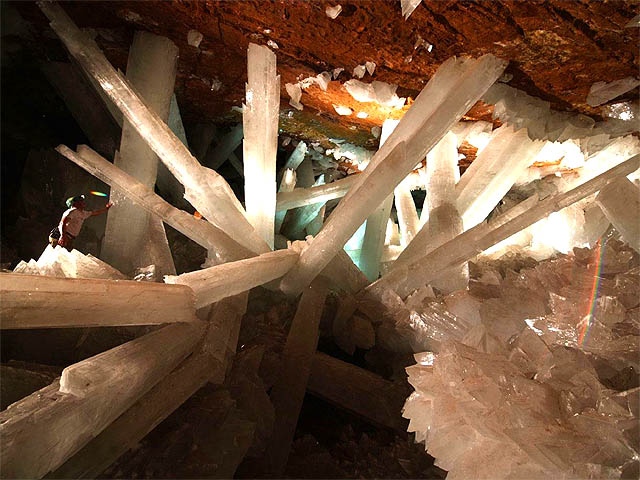   (photos by Javier Trueba / Madrid Scientific Films, image via) The crystals formed underwater; as water saturated with calcium sulfate heated in the cavern selenite molecules crystallized and grew, undisturbed, to giant proportions. The cave was drained (by unknowing miners) in the 1980's and stopped the process of growth. Who knows what we may find further on, in the heat and water? A description of one photographer's attempt to document this cave is here.  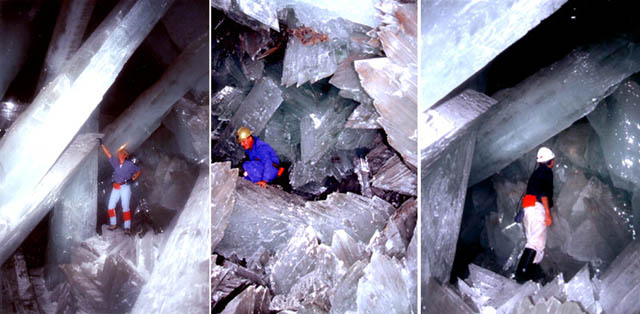 (images credit: Richard Fisher) "It is unquestionably magical that the cool white rays of moonlight can originate deep underground in a black chamber that is, at least in my perception, white hot." (Richard Fisher, photographer, comments on the huge selenite crystals.) A Giant Geode Geodes are normally formed by volcanic or sedimentary geologic activity - a cavity in the rock is formed, inside which crystals begin to grow, such as amethyst, quartz or a number of others. Most geodes are small enough to fit in your hand, but this one is large enough to climb inside. The crystals found here are gypsum. - More info. (images credit: Javier Garcia-Guinea) The largest Geode Cave in US is located in Ohio: Crystal Cave, check it out. Ancient Cave Cities Khosrov Caves in Armenia served as a shelter to ancient tribes - in a perfectly cinematic location: 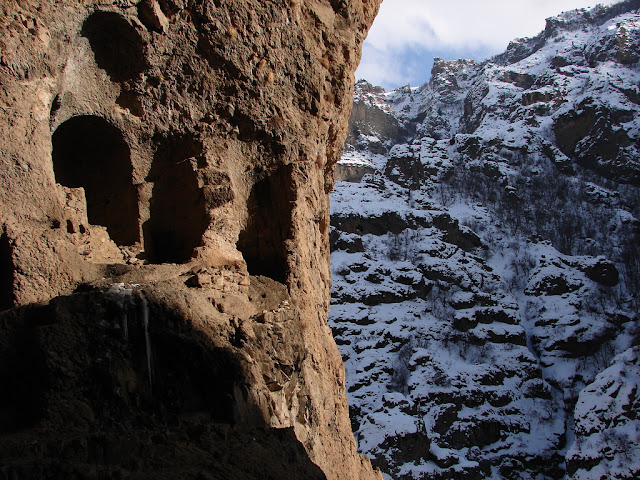 (image credit: 18:18)  (photos by Raffi Kojian and eco culture) We wrote about Cappadocia cave city in Turkey before. But you might not be aware that more modern establishment makes its home there - a luxury hotel! 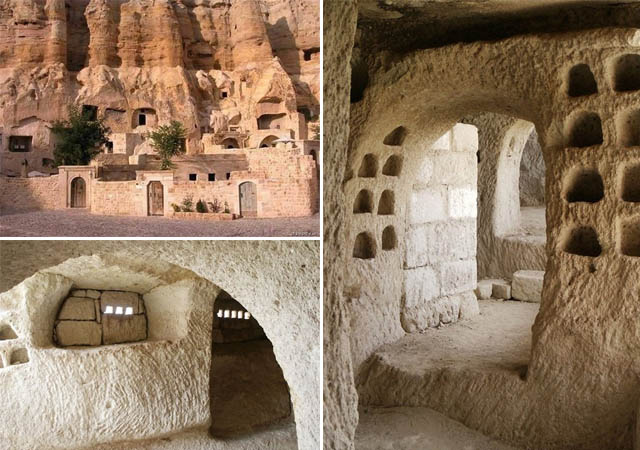 Considering how hot it can get outside, it definitely provides a welcome coolness: 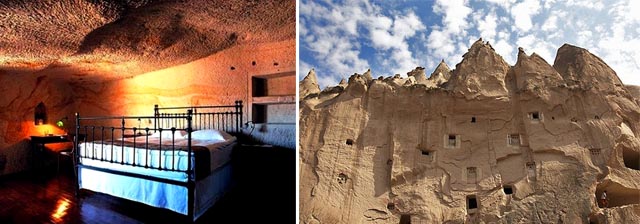 (images via) This PC case mod would fit right there, in that cave hotel room: 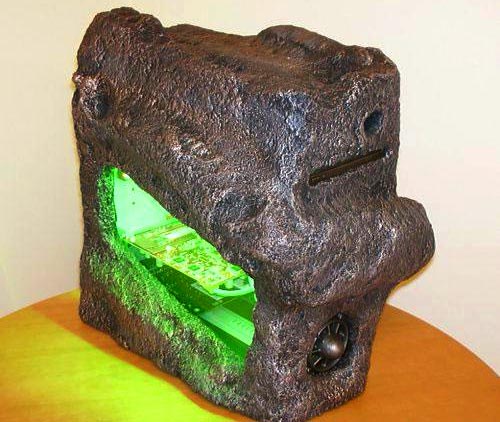 (case mod by Mashie) Then again, there's a wildly original Stockholm subway station, seemingly built inside a natural (in reality - blasted) cave : 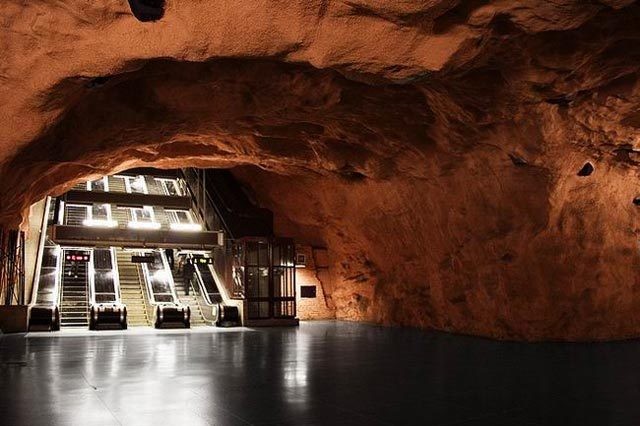 "Metro on Mars":  (image credit: Hannes R.) | ||
| |
__._,_.___
" Minuman para Anbia : http://higoat-2009.blogspot.com/"
" Anda masih mencari jodoh? Lawati http://www.myjodoh.net"
" Kertas Soalan Ramalan Matematik 2010 : http://maths-catch.com/exam"
" Kedai Maya : http://halawahenterprise.blogspot.com/"
" Blog Sahabat RG : http://azwandengkil.blogspot.com"
Terima kasih kerana sudi bersama kami. Untuk mendapatkan maklumat lanjut tentang ReSpeKs Group, sila ke : http://respeks-group.blogspot.com.
Segala email yang tersiar melalui Respeks Group adalah tanggungjawab penulis asal email. Owner atau moderator tidak bertanggungjawab ke atas setiap email yang disiarkan dan sebarang dakwa dakwi tiada kena mengena dengan moderator group.
" Anda masih mencari jodoh? Lawati http://www.myjodoh.net"
" Kertas Soalan Ramalan Matematik 2010 : http://maths-catch.com/exam"
" Kedai Maya : http://halawahenterprise.blogspot.com/"
" Blog Sahabat RG : http://azwandengkil.blogspot.com"
Terima kasih kerana sudi bersama kami. Untuk mendapatkan maklumat lanjut tentang ReSpeKs Group, sila ke : http://respeks-group.blogspot.com.
Segala email yang tersiar melalui Respeks Group adalah tanggungjawab penulis asal email. Owner atau moderator tidak bertanggungjawab ke atas setiap email yang disiarkan dan sebarang dakwa dakwi tiada kena mengena dengan moderator group.
.
__,_._,___
No comments:
Post a Comment